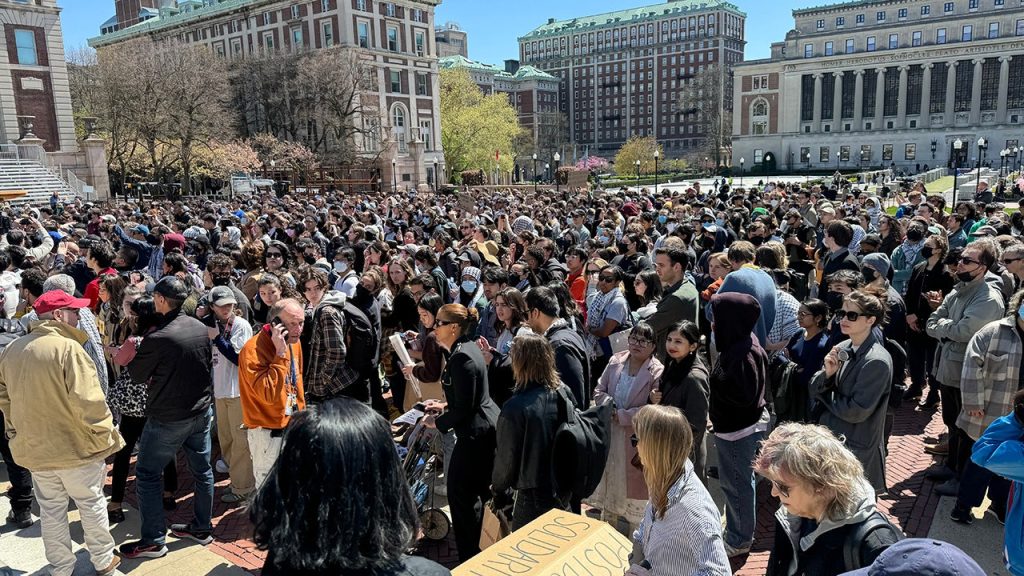Following weeks of unrest, Columbia University in New York has officially reopened its campus, allowing faculty to return to work. The university remains cautious, as it recognizes the potential for future disruptions and threats to the safety of the community. The decision to close the campus temporarily was made in response to antisemitic protests that included the takeover of an academic building and hundreds of arrests. The university is working on a plan to reopen to students while taking into account the risks of tensions spilling over onto the campus.
The university acknowledged the hardships faced by the Columbia community during the closure, especially as students are scheduled to begin their final exams. Faculty are now allowed access to offices on the Morningside campus, with plans for a gradual reopening to students. The safety and security of students, faculty, and staff remain the top priority, and the university is working to ensure that teaching, mentorship, and research can continue smoothly at the end of the term. By restricting campus access temporarily, essential functions like dining halls, research labs, and residential halls can operate without disruption.
After facing unrest and disruptions for nearly two weeks, Columbia University administrators changed their approach to the situation. Following anti-Israel agitators taking over an academic building, the university took action by arresting hundreds of individuals and involving the NYPD to address safety concerns. The campus was locked down to address the serious threats posed by the occupying demonstrators, who raised the Palestinian flag in place of the US flag and engaged in antisemitic activities. The university’s decision to seek law enforcement support was driven by the need to maintain safety and security for the community.
The university emphasized its commitment to reopening the Morningside campus and bringing back the heart of the community to all members as soon as possible. The expansion of faculty access aims to facilitate teaching, research, and mentorship activities for the remainder of the term, while restrictions on broader community access are in place to ensure the smooth functioning of essential services. Columbia continues to monitor the situation closely, recognizing the potential for further disruptions and the need to guard against outside influences that may threaten the safety and well-being of students, faculty, and staff. The university’s decision-making process is guided by the goal of maintaining academic integrity and ensuring a secure environment for the community.
Despite facing challenges and disruptions, Columbia University remains focused on upholding its academic mission and supporting the well-being of its community. The recent incidents of unrest and antisemitic protests led to a temporary closure of the campus and the involvement of law enforcement to address safety concerns. While the situation was difficult, the university took steps to address the disruptions and ensure the safety and security of its community members. By reopening the campus gradually and implementing safety measures, Columbia aims to resume normal operations while remaining vigilant against potential threats and disturbances. The university’s commitment to academic excellence and community well-being underscores its efforts to navigate through challenging circumstances and maintain a safe environment for all.













